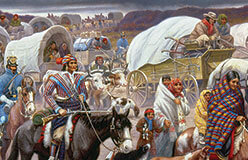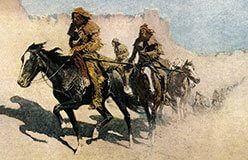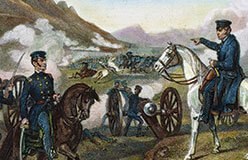There’s a big meeting of the elders in your Cherokee tribe, and everyone’s in a very serious mood. Listening outside, you and your best friend hear your father say, “The Americans are going to make us go west.” But your people already have homes here, in the place the Americans call Georgia. Some of your friends even learn English in their schools, so why would they want you to leave?
The U.S. government had promised to respect American Indians’ rights, but as more settlers moved to land east of the Mississippi, many didn’t like being around native people. In 1830, President Andrew Jackson signed the Indian Removal Act, a law that broke many earlier treaties. It said Indians east of the Mississippi River had to trade their land for land west of the river. This area, known as “Indian Territory,” took up most of what is now Oklahoma. If tribes refused, the government forced them to leave.








